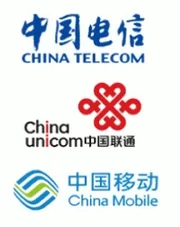Traveling to China can be an exciting adventure, but staying connected while you’re there requires some planning. Understanding the landscape of internet access in China is crucial for a seamless experience.
This guide aims to provide foreign tourists with all the necessary information about internet usage, including VPNs, local SIM cards, and Wi-Fi options. By the end of this article, you’ll be well-prepared to navigate China’s unique internet environment and stay connected with ease.
1. Overview of Internet Access in China
First, it’s essential to understand that China’s internet is unique. The country has a complex system of internet controls, often referred to as the “Great Firewall.” This system blocks access to many popular international websites and services, including Google, Facebook, Twitter, and YouTube. However, Chinese alternatives like Baidu, WeChat, and Weibo offer similar functionalities. By the way, Bing.com is available in China.
Despite these restrictions, internet access in China is widespread and generally reliable. Major cities like Beijing, Shanghai, and Guangzhou offer high-speed internet. However, rural areas may have slower connections. To stay connected, tourists can use Wi-Fi, mobile data, or a combination of both.
2. Using Wi-Fi in China
Wi-Fi is widely available in China, especially in urban areas. You can find free Wi-Fi in hotels, cafes, airports, and shopping centers. However, public Wi-Fi networks can be less secure. It’s advisable to use a Virtual Private Network (VPN) to protect your data. Additionally, many Wi-Fi networks require a Chinese phone number for registration. Thus, having a local SIM card can be helpful.
When using Wi-Fi, be aware of potential restrictions. Some websites and apps may be blocked due to the Great Firewall. To access these sites, you’ll need a reliable VPN. However, not all VPNs work in China, so it’s crucial to choose one that is proven to bypass the restrictions.
3. VPN for China Travel
A VPN is a must-have for accessing the global internet in China. It encrypts your internet connection and routes it through servers in other countries, allowing you to access blocked websites. However, China actively blocks many VPN services. Therefore, it’s essential to choose a VPN that consistently works in China.
One of the best VPNs for China is LetsVPN, the most advanced VPN. Its strengths: Unlimited data for every monthly plan. All you need to do is to enjoy the fast speed and safe Internet. It’s advisable to download and set up your VPN before arriving in China, as VPN websites are also blocked within the country. Additionally, consider choosing a VPN with multiple server locations and good customer support.
4. Using an eSIM
This is one of the best options for travelers. If your phone supports eSIM (available on iPhone 11 and later), you can buy a virtual SIM card that gives you full access to the internet, including all Western apps. You can even set it up before you arrive in China.
The best part? No need for a VPN. Some eSIM providers like Holafly or Nomad offer affordable plans with data starting at just a few dollars. I personally recomme
5. Local SIM Cards and Mobile Data in China

Using a local SIM card is a great way to stay connected in China. It offers affordable mobile data plans, and SIM cards are easy to find at airports, convenience stores, and mobile phone shops. The main carriers are China Mobile, China Unicom, and China Telecom. Each carrier has various coverage options, so be sure to check which one works best in the regions you plan to visit.
To buy a SIM card, you’ll need to show your passport. There are different data plans available, so pick one that fits your needs. In general, mobile data in China is fast and reliable, especially in larger cities. However, keep in mind that mobile internet, like Wi-Fi, is subject to the Great Firewall. To access restricted content, it’s advisable to use a VPN on your mobile device. Make sure to set up the VPN before you travel, as it can be tricky to install once in China.
6. How to Access Blocked Websites in China
As previously mentioned, the Great Firewall blocks access to many international websites. However, there are ways to access these sites. The most common method is using a VPN. Another option is using a proxy server, though this method is less secure and slower.
In addition to VPNs and proxies, you can use international roaming services from your home country. Some carriers offer roaming plans that bypass the Great Firewall. However, this option can be expensive, so check with your provider before your trip. It’s crucial to remember that while these methods can help you access blocked websites, they may not always be 100% reliable.
7. China Mobile Internet Options

China offers a variety of mobile internet options for tourists. Besides local SIM cards, tourists can rent portable Wi-Fi devices. These devices offer unlimited data and can connect multiple devices simultaneously. They are available at airports, hotels, and rental shops. Portable Wi-Fi is convenient for group travel and offers flexibility.
Another option is using eSIM technology, which allows you to download a virtual SIM card on compatible devices. eSIMs offer similar benefits to physical SIM cards and are easy to set up. However, they may not be compatible with all devices. Whether you choose a SIM card, portable Wi-Fi, or eSIM, ensure you understand the data plan’s terms and conditions.
8. China Internet Security for Tourists
Internet security is a critical concern for tourists in China. Public Wi-Fi networks can be insecure, making your data vulnerable to hacking. Using a VPN can provide an additional layer of security by encrypting your internet traffic. Furthermore, avoid accessing sensitive information like banking details on public networks.
Additionally, be cautious about downloading apps or software. Only use trusted sources, as malicious software can compromise your device. It’s also a good idea to use strong, unique passwords for all your accounts. By taking these precautions, you can protect your personal information while staying connected.
9. How to Stay Connected in China Without a VPN
Staying connected in China without a VPN is possible but limited. You can use local apps and services like WeChat (English Versipn ), Baidu, and Weibo. These platforms offer similar functionalities to international counterparts and are widely used in China. However, they may lack some features and require knowledge of the Chinese language.
Another option is using international roaming services from your home country. Some carriers offer plans that bypass the Great Firewall, allowing access to blocked websites. However, this option can be costly, so it’s essential to check with your provider beforehand. Ultimately, while you can stay connected without a VPN, your internet experience may be limited.
10. Best Ways to Access the Internet in China
The best way to access the internet in China depends on your needs and preferences. For comprehensive access, combining Wi-Fi, mobile data, and a VPN is ideal. This combination ensures you have internet access wherever you go and can access blocked websites securely.
For those who prefer convenience, portable Wi-Fi devices or eSIMs are excellent options. They offer flexible data plans and can be used across multiple devices. However, if you’re on a budget, local SIM cards provide affordable data options. Regardless of your choice, always prioritize security by using a VPN and following internet safety practices.
11. Setting Up Mobile Data in China for Travelers
Setting up mobile data in China is a simple process. First, purchase a local SIM card or eSIM. Next, activate the data plan by following the instructions provided. Most carriers offer data packages with varying amounts of data, so choose one that suits your needs.
Once activated, insert the SIM card into your phone or activate the eSIM on your device. Configure the APN settings if necessary, though this is usually done automatically. You should now have access to mobile data. Remember, mobile data in China is also subject to the Great Firewall, so using a VPN is advisable.
12. China Internet Speed and Quality
China’s internet speed and quality vary depending on location and service provider. Major cities like Beijing and Shanghai offer high-speed internet, comparable to international standards. However, rural areas may experience slower speeds and less reliable connections.
Public Wi-Fi networks can also vary in speed and quality. Hotels and upscale cafes often offer faster connections, while public spaces may have slower speeds. Mobile data generally provides consistent speed and coverage, especially with major carriers. For the best experience, choose reputable service providers and consider using a VPN to ensure stable connections.
13. Free Wi-Fi Locations in China
Free Wi-Fi is widely available in China, especially in urban areas. You can find free Wi-Fi in hotels, cafes, restaurants, airports, and shopping centers. Many public transportation hubs, like train stations and bus terminals, also offer free Wi-Fi.
However, free Wi-Fi networks can be less secure, so using a VPN is recommended. Additionally, some networks may require registration with a Chinese
Wi-Fi is convenient, it’s essential to be cautious about security. Avoid accessing sensitive information on these networks and use a VPN to protect your data. By taking these precautions, you can safely enjoy free internet access in various locations throughout China.
14. China Internet Connectivity for Expats
Expats living in China face unique challenges regarding internet connectivity. While many opt for local ISPs, navigating the Great Firewall remains a common concern. Expats often rely on VPNs to access international websites and services. It’s crucial to choose a VPN that offers consistent and reliable access, as some VPNs may not work well with Chinese ISPs.
Another option for expats is setting up a home Wi-Fi network with a reputable ISP like China Mobile, China Unicom, or China Telecom. These providers offer various packages, including high-speed fiber-optic connections. While setting up internet services can be straightforward, understanding the terms of the contract and the service level is essential. Additionally, expats can benefit from using international SIM cards or eSIMs for seamless mobile connectivity across borders.
15. How to Buy a Sim Card in China
If you’re applying for a SIM card in China, you’ll typically need the following documents in addition to your passport:
Required Documents
✅ Visa or residence permit
According to China’s Telecommunications Regulations, foreigners must provide a valid visa or residence permit to verify their legal status in the country.
✅ Proof of address
In some cases, you may need to provide a local address in China, such as your hotel booking or a rental contract.
Additional Documents (If Applicable)
- Work permit – If you’re working in China, some providers may ask for a work permit or an employment verification letter.
- Permanent residence card – If you hold a Chinese permanent residence ID, you can use it to register.
Special Cases
📌 Online SIM card purchases
If you order a SIM card through platforms like Nihao Mobile, you may only need your passport for identity verification and activation.
📌 Short-term tourist SIMs
Some providers offer temporary SIM cards for tourists, which usually require just a passport and visa.
Things to Keep in Mind
🔹 Document validity – Your passport and visa must be valid, usually with at least six months remaining.
🔹 Language support – If you don’t speak Chinese, consider using a translation app or choosing an operator with multilingual support, like Nihao Mobile.
🔹 Where to check for updates – For more details, you can visit China Mobile’s official website: China Mobile.
📱Mainland China Data eSIM: 0.5GB/Daily to 20GB-30Day(VPN INCLUDED)
Stay connected while traveling in Mainland China with this easy-to-use data-only eSIM, complete with a built-in VPN to access global websites. Choose from flexible plans ranging from 0.5GB per day to 20GB total over 30 days, depending on your travel needs.
👉 Buy your Mainland China Data eSIM now!
Overview:
• Instant delivery – receive your eSIM QR code within minutes via email
• Easy setup – just scan the QR code to activate
• Plan starts upon activation (installation date = first day of usage)
• Data only – no voice calls or SMS supported
• Mobile hotspot/tethering supported
• One-time prepaid package – no contracts, no auto-renewals
• Compatible with unlocked, eSIM-enabled devices (check your device specs before purchase)
• Note: Most phones purchased in China or Hong Kong do not support eSIM
• No refunds or cancellations due to device incompatibility or changes in travel plans
• Customer support available via reply to the confirmation email from our supplier
• Must activate within 30 days of purchase
• Connects to major Chinese mobile networks at 4G LTE or 5G speeds, depending on coverage
Perfect for travelers who need secure, reliable access to the internet while in China—without the hassle of a physical SIM card.
Navigating internet access in China requires understanding the country’s unique digital landscape. With the right tools and knowledge, foreign tourists and expats can stay connected and secure. Whether you’re using Wi-Fi, mobile data, or a combination of both, this guide provides essential insights into the best practices for internet access in China.
From understanding the importance of a reliable VPN to choosing the right SIM card and data plan, preparation is key. While the Great Firewall presents challenges, knowing how to bypass it ensures a more connected experience. By following the tips and recommendations in this guide, you can enjoy seamless internet access during your stay in China, keeping you connected to the world and informed throughout your journey.
More China Survival Guide
Prepare for smooth travels with the China Survival Guide, your go-to resource for practical advice on navigating daily life in China. From essential language tips and transportation know-how to safety guidelines and local etiquette.




